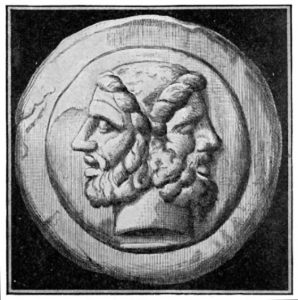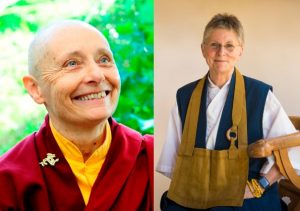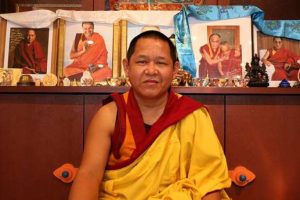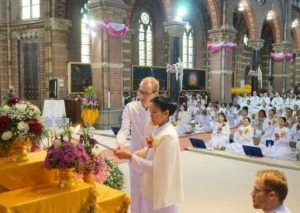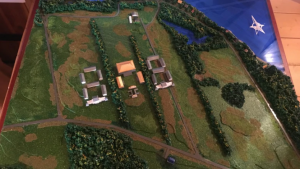
Thailand will observe Makha Bucha, also known as Sangha Day, on 24 February, an important Buddhist festivals that extends across many countries and cultures in South and Southeast Asia, including in Cambodia, Laos, Myanmar, and Sri Lanka.
The festival, which celebrates the creation the Buddhist community, takes place on the full moon day of the third lunar month, falling around the last week of February or in early March.
Makha Bucha is a national holiday in Thailand, during which the sale of alcohol is forbidden. The Prime Minister’s Office implemented this prohibition in 2015. It is also applied to four other Buddhist holidays: Khao Phansa (or Vassa, sometimes known as Buddhist Lent), Wan Ok Phansa (the end of Vassa), Asarnha Bucha (also known as Dharma Day, celebrating the Buddha’s first teaching), and Visakha Bucha (Or Vesak, marking the birth, enlightenment, and passing of the Buddha). Offenders of the alcohol ban face a maximum six-month jail term, a fine of 10,000 baht (US$280), or both.

To commemorate Makha Bucha this year, Thailand’s Ministry of Culture has enshrined sacred Buddhist relics—which include relics of two of the Buddha’s disciples, Sariputra and Maudgalyayana—at a shrine in Sanam Luang in Bangkok’s Phra Nakhon District. The relics, on loan from India, were brought to Thailand on 22 February, marking a significant development in diplomatic ties between the two nations. The shrine in Sanam Luang will be accessible to the public every day from 9 am to 8 pm until 3 March.
After 3 March, the relics will be housed in the Royal Park Rajapruek in Chiang Mai Province from 5–8 March, then at Wat Maha Wanaram in Ubon Ratchathani Province from 10–13 March, and at Wat Maha That Wachiramongkol in Krabi Province from 15–18 March.
The Deccan Herald newspaper in India reported that the relics would return to India on 19 March. According to Indian culture secretary Govind Mohan: “The exposition is a significant development diplomatically for us, and it will go a long way in strengthening the ties between India and Thailand.” (Deccan Herald)

Makha Bucha celebrates a significant event in the life of the Buddha that took place at Veluvana Bamboo Grove near Rajagaha (modern-day Rajgir) in the Indian state of Bihar. It occurred on an auspicious day, about 10 months after the Buddha’s enlightenment, when four important events unfolded:
(1) 1,250 men from various places gathered before the Buddha without prior arrangement.
(2) The Buddha ordained them as monks with the words, “Ehi bhikkhu!” (“Come, monk!”).
(3) All these men achieved arhatship.
(4) The Buddha imparted special teachings known as ovada patimokkha (the Patimokkha Exhortation), which laid down the fundamental principles of his teachings.
Although its origins can be traced to the fifth century BCE, Makha Bucha first became a holy day in Thailand in the 19th century, due to cultural reforms enacted by King Rama IV (r. 1851–68). Initially attended by only monks and royalty, today millions of Thai Buddhists partake in the celebrations.
On this auspicious day, Buddhists awaken early to offer alms to monks, observe the precepts, and practice meditation. In the evening, monastics deliver Dhamma talks and perform rituals such as the candle ceremony, walking clockwise around the temple three times while holding a lit candle, flowers, and incense.
See more
Makha Bucha Day 2024 (Thailand Now)
Phuket gears up for annual Makha Bucha national Buddhist holiday (Thaiger)
Relics of Buddha’s disciples to be enshrined as Makha Bucha celebrated (The Nation)
Buddha’s bone fragments to be sent from India to Thailand; sacred relics to be treated as ‘state guest’ (Deccan Herald)
Related news reports from BDG
Buddhist Monks Lead Japanese Fire-walking Festival
Kalmykia Marks Festival of Miracles with Prayers and Online Teachings
Cambodia’s Ministry of Environment Developing Buddhist Cultural Center at Kirirom National Park
Female Tibetan Filmmaker Wins Three Awards at My Hero International Film Festival
Metropolitan Museum in New York to Return Stolen Buddhist Artifacts to Cambodia and Thailand
UNESCO Lists Korea’s Buddhist Lantern Festival as Intangible Cultural Heritage of Humanity
Related features from BDG
Pavarana: Marking the End of the Rains Retreat
The Khao Phansa Festival: The “Buddhist Lent” of Thailand
Pavarana: The Theravada Tradition of Launching Sky Lanterns
The Magha Puja Festival: A Time to Make Merit for Southeast Asian Buddhists






